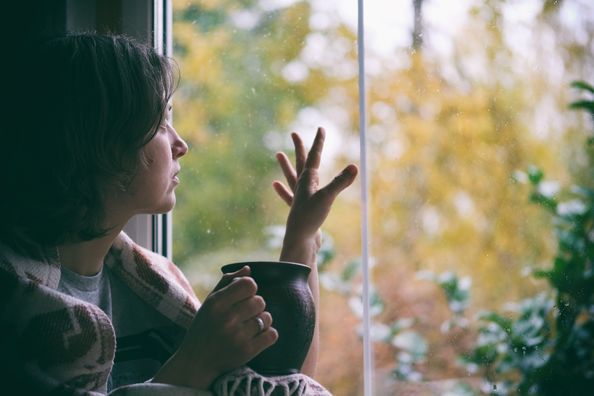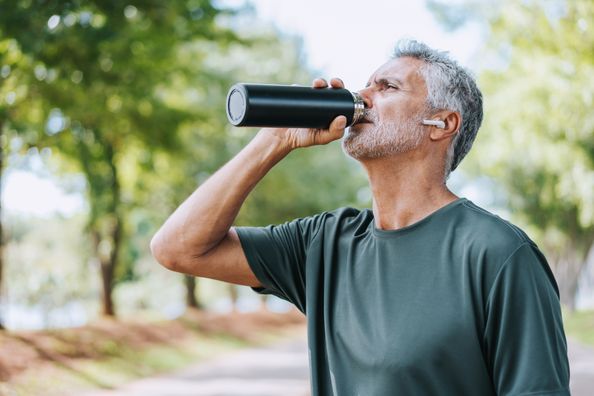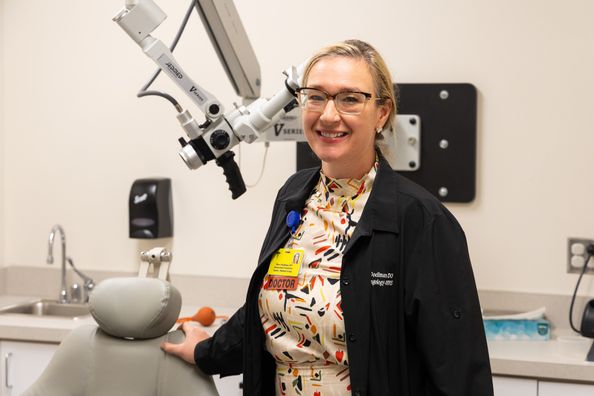Summer is winding down. Well, it was when I started this post, but it seems that autumn has arrived overnight. The temperature outside is noticeably cooler and pumpkin spice everything is in the stores. But along with the geese, some people’s moods are getting ready to fly south for winter. Fall ushers in all the plaid scarves and the start of mild to moderate depression for many people.
The disorder formerly known as Seasonal Affective Disorder has been replaced in the fifth edition of The Diagnostic and Statistical Manual of Mental Disorders (2013) with Major Depressive Disorder with the specifier “with a seasonal pattern.”
Who else is sad that SAD is no longer its own diagnosis?
Depressive episodes that follow a seasonal pattern include symptoms that start and end at specific times of the year. Symptoms can range in severity from mild to severe and must be present for at least two weeks to meet criteria for diagnosis. Fall or winter onset with symptoms ending in spring are most common, though recurrent summer depressive episodes also happen.
Common symptoms of seasonally specific depression:
- low energy
- lack of motivation
- anxiety
- sleepiness or insomnia
- weight gain
- craving carbs and other appetite changes
- social withdrawal and isolation
- feelings of sadness
- lack of concentration
Basically, it’s the human version of preparing for hibernation.
Seasonal depression is more likely in females, young people, people that live far from the equator, and people with a personal history or family history of other types of depression. It can be seen in children and teens as well. The exact causes remain unclear but research suggests that problems with serotonin, melatonin, and Vitamin D play a role in this type of depression.
Self-Help
Since hibernation isn’t a valid option for most of us, here are a few guidelines for coping with seasonal depression symptoms:
Stay active. Physical activity can offset symptoms like sleepiness and anxiety.
Go outside. Spending time outside during the day raises Vitamin D. It also reminds your body that the sun still exists, something that’s hard to remember as it gets darker and colder. And did I mention darker?
Keep a regular schedule. Going to bed and getting up at the same times every day keeps your circadian rhythm in sync which reduces both insomnia and excessive sleeping.
(If you’ve read my other posts, these three strategies are probably starting to look familiar. That’s because they are central to maintaining overall mental and physical wellness.)
Track your symptoms. Note your mood, sleeping and eating habits, and negative thoughts and feelings. This will help you get a better sense of any patterns present in your symptoms. It will also help your doctor or counselor determine what types of treatment might be appropriate if you decide to seek professional help.
When Self-Help Doesn’t Work
If you are engaging in regular exercise, spending time outside, maintaining a consistent schedule of eating and sleeping, and you continue to experience symptoms of depression, it may be time for professional help:
Psychotherapy can reduce seasonal depression by helping you change maladaptive thoughts and behaviors that are contributing to your symptoms. A therapist can help you create an action plan for reducing the severity of your current symptoms and preventing future episodes of seasonal depression.
Your doctor might recommend a check-up to rule out medical concerns, vitamin supplementation, or antidepressant medication to treat your depression. He or she might also suggest light therapy which involves exposure to artificial light that mimics the natural light we get during the spring and summer months.
If your mood is falling with the leaves, you have options. But whatever treatment approach you choose, take heart! There are just 175 days until Spring.
Nikki
**The content of this blog should not be considered an alternative to quality mental health care and is intended to be a source of information only.**
Health Topics:







